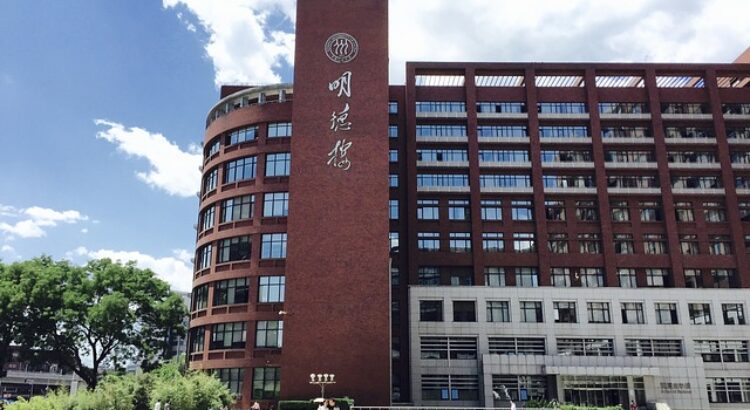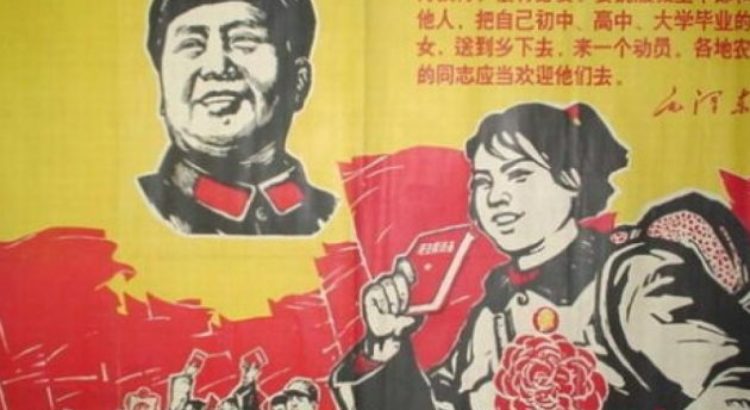Asia/China/09.07.18/Source: www.atimes.com.
Peking University professor has stirred a commotion with his call to re-establish education centers in China’s vast rural areas, like the camps that existed from the 1960s until the Cultural Revolution intended for ideological remolding of educated urban youth, after Mao Zedong decreed that re-education by members of the proletariat, in particular peasants, was a must for college and high-school graduates.
Yu Hongjun, a professor of finance and microeconomics at PKU’s Guanghua School of Management, said in an opinion piece that “to solve college students’ employment issue, educated urban youth should be sent to the countryside or rural areas” for re-education.
Yu is also a deputy secretary of PKU’s party committee, the university’s top governing body.
He first broached the matter back in 2009, when he said that “starting the campaign in the new period” could not only alleviate employment pressure but also enable youngsters from cities, who were usually spoiled, to know about their country better.

Yu Hongjun
Yu Hongjun, a professor of finance and microeconomics at PKU’s Guanghua School of Management, said in an opinion piece that “to solve college students’ employment issue, educated urban youth should be sent to the countryside or rural areas” for re-education.
Yu is also a deputy secretary of PKU’s party committee, the university’s top governing body.
He first broached the matter back in 2009, when he said that “starting the campaign in the new period” could not only alleviate employment pressure but also enable youngsters from cities, who were usually spoiled, to know about their country better.
Deng Xiaomang, a professor at the Wuhan-based Central China University of Science and Technology, is one of the few who have openly echoed Yu’s idea. “Young people experiencing rural life can enrich [their own lives]. I even consider it a ‘compulsory course,’ not to be carried out on a voluntary basis,” Deng said.
Under Mao, the tens of millions of postsecondary and high-school graduates mandated to spend their prime years plowing cornfields or pasturing cattle in China’s countryside were collectively known as zhiqing, or rusticated youth.
Current Communist Party General Secretary Xi Jinping was one of them, having spent seven years working the land in Liangjiahe, an impoverished village in the central province of Shaanxi, before he enrolled in Tsinghua University’s department of chemistry in 1975.
Many people cut their teeth in the harsh living environment and became experts in agriculture or rural studies, when the majority of rural China was still in penury. Yet the consensus even among today’s party cadres is that Mao’s whimsical edict led to a tremendous waste of the nation’s young talent. Graduates were deprived of tertiary education or employment opportunities in his “Up to the Mountains and Down to the Countryside” movement, an integral part of his ideals of the Cultural Revolution that wreaked havoc on China.

The ordeal of their zhiqing years is still so vivid that it’s unsurprising to see the hefty backlash to Yu’s remarks, in particular from those who were told to go to the countryside in their teenage years or early 20s.
Even the Beijing-based nationalist tabloid Global Times noted in its report that reviving such camps would simply be “incompatible with the times.”
Not a few of these zhiqing stayed behind and spend the majority of their lives in villages and counties where they had been randomly assigned to go, even after Deng Xiaoping’s economic reforms ultimately rescinded Mao’s policy at the end of the 1970s.
Source of the notice: http://www.atimes.com/article/pku-prof-suggests-reviving-mao-era-rural-education-camps/








 Users Today : 87
Users Today : 87 Total Users : 35404354
Total Users : 35404354 Views Today : 106
Views Today : 106 Total views : 3333880
Total views : 3333880